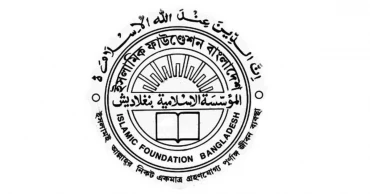Muslims
First phase of Biswa Ijtema to begin Jan 31
The first phase of Biswa Ijtema will begin on January 31, 2025, Home Adviser Lt. Gen (retd) Md Jahangir Alam has said.
“The first phase of Biswa Ijtema will be held on January 31, February 1 and 2, and the second phase will take place on February 7-9,” the adviser announced after a meeting with two factions of the Tabligh Jamaat at the Ministry of Home Affairs.
Followers of Maulana Saad Kandhalvi attended the meeting while representatives of Maulana Zubair Hasan were absent.
Read: Second phase of Biswa Ijtema begins on banks of Turag
The meeting discussed several issues including the ground preparedness, law and order, handover of the ground, providing visa to guests, overall safety of VVIPs, VIPs, traffic control, and setting up control rooms, water supply and sewerage system.
Moreover, it discussed measures to prevent disasters and accidents, first aid for the devotees, management of temporary shops, eviction of slums and illegal establishments, monitoring of sale of hygienic food at Ijtema venue, removal of obscene movie posters and measures to reduce traffic congestion on the day of Akheri Munajat.
The decision on which of the groups will get the venue first has not been taken yet as the followers of Zubair refrained from attending the meeting.
The Tabligh Jamaat has been hosting the Bishwa Ijtema at Tongi since 1967 and introduced the phase system in 2011 to better manage the growing number of participants.
1 year ago
Eid-ul-Adha Cleanliness Tips: Keep Your Home and Surroundings Spotless After Qurbani
Eid-ul-Adha, also known as the Festival of Sacrifice, holds profound significance in the Islamic calendar. It commemorates the willingness of Prophet Ibrahim to sacrifice his son in obedience to God's command. Muslims worldwide honor this event by performing Qurbani, the ritual sacrifice of an animal such as a goat, sheep, cow, or camel. This act is a manifestation of devotion, obedience, and charity. However, with the joy and blessings of Eid-ul-Adha comes the responsibility of maintaining cleanliness, especially after the Qurbani. Proper hygiene is vital to prevent disease spread and to respect the environment and community.
Preparations Before Qurbani
Choose the Right Location
Selecting an appropriate location for the sacrifice is the first step in ensuring cleanliness. Ideally, this should be a clean, designated area that is easy to sanitize post-Qurbani. If you are performing the sacrifice at home, choose an open, ventilated space like a backyard or garden. Avoid places where food is prepared or consumed to prevent contamination.
Gather Necessary Supplies
Before performing Qurbani, gather all the necessary supplies to facilitate an efficient and hygienic process. These include:
- Cleaning supplies: Disinfectants, antiseptic solutions, garbage bags, and cleaning tools.
- Protective gear: Gloves, aprons, and masks to maintain personal hygiene.
- Containers: Clean containers for storing meat and other parts of the animal.
- Tools: Ensure all cutting tools are clean and sanitized before use.
Read more: What is ‘Zero Waste’ and why is it important?
Inform Neighbors
It is courteous to inform your neighbors about your Qurbani plans, especially if you live in a close-knit community. This allows them to make necessary arrangements and ensures cooperation in maintaining cleanliness. Encourage your neighbors to follow similar cleanliness practices to keep the entire community tidy.
During Qurbani
Maintain Hygiene
Maintaining hygiene during the Qurbani process is crucial. Use clean and sanitized tools for the sacrifice to prevent contamination. All individuals involved should wash their hands thoroughly and frequently with soap and water to maintain personal hygiene. Additionally, wearing protective gear such as gloves and aprons is important to prevent direct contact with blood and other fluids, further ensuring a safe and sanitary process.
Proper Handling of Waste
Proper handling of waste generated during Qurbani is essential to prevent contamination and maintain cleanliness. Here’s how you can manage waste effectively:
- Separate the edible parts from the waste immediately after the sacrifice.
- Use designated bins for different types of waste. Organic waste, such as blood and internal organs, should be disposed of in specific bins and covered properly.
- Avoid throwing waste in open areas or public spaces to prevent attracting pests and causing a nuisance to others.
Read more: Plastic Pollution: Harmful effects on human health and environment
Immediate Post-Qurbani Clean-up
Waste Disposal
After Qurbani, the immediate disposal of waste is crucial. Pack the waste securely in heavy-duty garbage bags; double-bagging is recommended to prevent leaks and spills. Dispose of the waste at designated locations or waste collection points rather than leaving the garbage bags outside your home or in public areas. This practice helps maintain cleanliness and prevents the spread of disease.
Disinfect the Area
Once the waste has been disposed of, the area where the Qurbani was performed needs to be thoroughly cleaned and disinfected. Use disinfectants to clean the site, paying special attention to areas with blood and other residues. Wash the area with plenty of water to ensure no traces of blood or waste remain. Additionally, disinfect all tools and equipment used during the Qurbani to prevent any bacterial or viral contamination, ensuring a hygienic environment.
Personal Hygiene
After completing the clean-up, it is important to ensure personal hygiene. Thoroughly wash your hands and any exposed skin with soap and water to remove any contaminants. Clean and disinfect any protective gear worn during the process, such as gloves and aprons, to prevent the spread of bacteria. If possible, take a shower to ensure complete cleanliness and to feel refreshed after the task. These steps are essential for maintaining personal health and hygiene.
1 year ago
India announces steps to implement a citizenship law that excludes Muslims
Prime Minister Narendra Modi's government on Monday (March 11, 2024) announced rules to implement a 2019 citizenship law that excludes Muslims, weeks before the Hindu nationalist leader seeks a third term in office.
The Citizenship Amendment Act provides a fast track to naturalization for Hindus, Parsis, Sikhs, Buddhists, Jains and Christians who fled to Hindu-majority India from Afghanistan, Bangladesh and Pakistan before Dec. 31, 2014. The law excludes Muslims, who are a majority in all three nations.
The law was approved by Indian Parliament in 2019, but Modi’s government had held off with its implementation after deadly protests broke out in capital New Delhi and elsewhere. Scores were killed during days of clashes.
The nationwide protests in 2019 drew people of all faiths who said the law undermines India’s foundation as a secular nation. Muslims were particularly worried that the government could use the law, combined with a proposed national register of citizens, to marginalize them.
The National Register of Citizens is part of Modi government’s effort to identify and weed out people it claims came to India illegally. The register has only been implemented in the northeastern state of Assam, and the ruling Bharatiya Janata Party has promised to roll out a similar citizenship verification program nationwide.
19 dead and 7 missing as landslide and flash floods hit Indonesia's Sumatra island
Modi’s government has defended the 2019 citizenship law as a humanitarian gesture. It argues that the law is meant only to extend citizenship to religious minorities fleeing persecution and would not be used against Indian citizens.
“These rules will now enable minorities persecuted on religious grounds in Pakistan, Bangladesh and Afghanistan to acquire citizenship in our nation,” Home Minister Amit Shah wrote on X, formerly Twitter.
India’s main opposition Congress party questioned the announcement, saying “the timing right before the elections is evidently designed to polarise the elections.”
Human rights watchdog Amnesty India in a statement called the law “discriminatory” and said it “goes against the constitutional values of equality and international human rights law.” It said the law “legitimises discrimination based on religion” and is “exclusionary in its structure and intent.”
India is home to 200 million Muslims who make up a large minority group in the country of more than 1.4 billion people. They are scattered across almost every part of India and have been targeted in a series of attacks that have taken place Modi first assumed power in 2014.
Critics say Modi’s conspicuous silence over anti-Muslim violence has emboldened some of his most extreme supporters and enabled more hate speech against Muslims.
Modi has increasingly mixed religion with politics in a formula that has resonated deeply with India’s majority Hindu population. In January, he opened a Hindu temple at the site of a demolished mosque in northern Ayodhya city, fulfilling his party’s long-held Hindu nationalist pledge.
North Korea threatens to take military moves in response to US-South Korean drills
Most poll surveys suggest Modi will win a majority in a general election that is scheduled to be held by May.
1 year ago
Mouthwatering Sweet and Savoury Recipes for Holy Shab-e-Barat
Shab-e-Barat, a night of forgiveness and blessings, is a significant occasion for Muslims worldwide. As the night approaches, families gather to pray and share joyous moments. What better way to enhance the celebration than indulging in sweet and savoury delights? Here, we present exclusive recipes for a delectable Shab-e-Barat feast.
10 Delicious Shab-e-Barat Special Recipes for Bangladeshi Kitchen
Chickpeas Barfi (Cholar Dal-er Barfi)
Ingredients
1/2 cup chickpeas (cholar dal), 1 cup sugar, 3 tablespoons ghee, 1/2 teaspoon powdered cardamom, 2 cups thick milk, 1 tablespoon condensed milk, and 2 tablespoons mixed, dry fruits (as desired, for garnishing, preferably cashews for decoration)
Instructions
First, soak chickpeas (cholar dal) for 2 hours, and grind. Then mix the paste in thick milk with cardamom and a tablespoon of ghee. Cook on low heat, stirring to avoid sticking.
Now, gradually add the rest of the ghee. Once thickened, transfer to a greased plate, let it set for 30 minutes, then cut into square shapes. You can garnish with cashews or preferred dry fruits before serving.
Read more: Ramadan Fasting with Diabetes: Best foods for Sehri and Iftar
Shahi Carrot Halwa (Gajar-er Shahi Malai Halwa)
Ingredients
500 grams carrots, 1/2 cup milk, 1 teaspoon fresh cream (malai), 2 tablespoons ghee, 1/2 cup sugar or as needed, 1 pinch salt, 10-12 cashew nuts (chopped), 12 raisins, 1/2 teaspoon cardamom powder, 250 ml full cream milk, 6 tablespoon powder milk, and 1 tablespoon date palm jaggery
Instructions
First, peel and grate carrots. Boil milk, add milk powder and date palm jaggery for malai. Simmer until semi-thick. Next, fry grated carrots in ghee, sweeten them with sugar, and cook in milk. Then, combine with malai, stirring constantly.
After that, roast cashews, raisins, and cardamom powder in ghee, mix with halwa, set in a mould, and garnish with cashews. Serve Shahi Malai Gajar Halwa warm for a delectable sweet dessert with a twist.
Read more: Healthy Sehri Meal Recipes for Ramadan Fasting
Semolina Halwa (Neshesta Halwa)
Ingredients1 cup fine suji/semolina, 1 cup sugar, 1 teaspoon lemon juice, 4 tablespoons ghee, 1 teaspoon rose water, 2 drops red/orange/green food colour, 1/4 cup pistachio (finely chopped), and 1/4 cup almond (thin slices)
Instructions
First, wash suji twice and soak it in 2-3 cups of water overnight. Drain the water, add 2 cups of water, and rub well. Next, strain using a cotton cloth, preserving the strained starch.
Then, in a small vessel, mix the starch with sugar, ghee, lemon juice, and rose water. Cook on medium heat, stirring continuously on low flame until it becomes transparent and absorbs all the ghee. At this stage, add colour, cook until well-mixed, then add pistachio nuts. Freeze, garnish with sliced almonds, cut as desired, and enjoy!
Read more: 7 Exclusive Halwa Ideas, Recipes for holy Shab-e-Barat
Coconut Barfi (Narikel-er Barfi)
Ingredients
2 cups coconut paste, 1 cup thick milk, 2 tablespoons semolina (suji), 1/2 cup ghee, 1 cup sugar, 1 piece cardamom powder, 2 pieces chopped almonds, and 1 tablespoon raisins
Instructions
First, heat ghee in a pan, add semolina, and roast. Add coconut paste, stir until roasted, then add milk, sugar, chopped almonds, and raisins. Stir continuously until the mixture thickens.
Then, sprinkle cardamom powder, mix well, and transfer the mixture to a greased plate. Level it and cut it into desired shapes. Garnish with raisins and almonds. This narikel barfi can be stored for a few days.
Read more: Microwave Cooking: 7 Healthy Chicken Breast Recipes
Egg Masub (Dim-er Monsur Pak)
Ingredients
3/4 cup oil or ghee, 3 eggs, 3/4 cup sugar, and crushed cardamom.
Instructions
First, in a deep pan, combine eggs, sugar, and oil. Stir with a whisk, incorporating crushed cardamom. Heat the mixture on the stove, stirring continuously to prevent lumps. Use a wooden spatula for even stirring and cook for 10 minutes until the oil separates, and the colour and texture change.
Then, turn off the stove. Transfer the mixture to a deep bowl or tin, press it evenly, tilt it to remove excess oil, and let it cool. Finally, cut into squares or rectangles, garnish with cashews, and enjoy this delectable treat.
Read more: 15 Tips to Make the Most of Buffet Dining
2 years ago
4 more devotees die at Ijtema venue
Four more devotees died at the Ijtema venue on Saturday (February 03, 2024) night, taking the death toll to 14.
The deceased were identified as Md Sanowar, of Gaibandha’s Pangsha upazila, Md Alam, son of Abdul Jalil of Chattogram’s Anowara upazila, Md Shahnewaz Bhuiyah, son of Nurul Huq of Narsingdi and Al Mahmud, son of late Osman Goni of Sirajganj.
With the four, a total of 14 people including a policeman died till Sunday morning during the first phase of Ijtema.
Read: 3 more devotees die at Ijtema venue
Earlier, 10 people died on the Ijtema ground. Of them, three died on the way to the Ijtema venue.
Habibullah Raihan, coordinator of Biswa Ijtema media cell and Dr Jahangir Alam, supervisor of Tongi Shaheed Ahsanullah Master General Hospital confirmed the deaths.
The first phase of 57th Bishwa Ijtema, the second largest global Muslim gathering, is ending today with continued spiritual activities, including the recitation of Allah’s divine names and sermons.
Read: GMP issues traffic directives to reduce sufferings of Ijtema devotees
2 years ago
First phase of Ijtema ends with ‘Akheri Munajat’
The first phase of the three-day 57th Bishwa Ijtema – the second largest congregation of Muslims – ended today (February 4, 2024) through “Akheri Munajat” (final prayer).
Maulana Hafez Zobair Ahmad, leader of Bangladesh Tabligh Jamaat and head imam of Kakrail Jame Masjid in Dhaka, conducted the prayer this morning.
Thousands of devotees sought mercy from Almighty Allah by raising their hands for divine forgiveness, blessings for peace and prosperity of the Muslim ummah. They also prayed for the country’s welfare.
Earlier in the morning after the Fajr prayer, Pakistani Tabligh leader Ziaul Huq delivered the sermon, which was translated into Bangla by Bangladeshi Maulana Nurul Rahman.
Read: 57th Ijtema: Devotees gather in Tongi for day 2
As part of the rationalized traffic system centring the final prayer, movement of vehicles will remain suspended from Tongi-Kamarpara road on Dhaka-Mymensingh Highway — from Tongi to Bhogra Bypass in Gazipur and from Abdullahpur to Ashulia Bypile — from Saturday midnight (12 am) to 2 pm today.
Gazipur Metropolitan Police Commissioner Mahbub Alam told media that the restriction may end at 2 pm or extend following the final prayer as it will depend on circumstances.
He said vehicles heading to Mymensingh and Gazipur have been advised to use Konabari via Gabtoli while vehicles heading to Dhaka from Mymensingh have been advised to use the 300 Feet Road through Bhogra bypass. During this time, no goods carrying vehicles will be allowed to run on these roads. However, all types of traffic movement related to Ijtema will remain normal.
On the other hand, Bangladesh Railway has decided to run 17 special trains on the occasion of Bishwa Ijtema.
Of these, 14 trains are operating only on the day of Akheri Munajat. Five special trains are running on the Dhaka-Tongi route, five trains on the Tongi-Dhaka route, one on the Tongi-Mymensingh route, one on the Tongi-Tangail route and two trains on the Ishwardi-Tongi-Ishwardi route.
Read: Ijtema Phase I: 'Please call us 'Alem e Shura', not followers of Jubayer'
Commencing on Friday after Fajr prayers, this edition of Ijtema kicked off with general sermons by the esteemed Maulana Ahmad Buttullah from Pakistan. The grounds of the Ijtema witnessed the influx of several hundred thousand Muslim worshippers from around the world.
So far, 14 elderly devotees have died at the Ijtema venue during the first phase of the global congregation, said Habibulla Imran, media coordinator of the Tabligh Jamaat.
Of them, four devotees died last night, he said.
For security, approximately 15,000 law enforcement officials are on duty at the Ijtema grounds and the surrounding vicinity, supplemented by undercover police and intelligence personnel.
The Rapid Action Battalion (RAB) is also present, with watchtowers erected to oversee and ensure the safety of the congregation.
Tabligh Jamaat has been organising the congregation at the venue since 1967. In 2011, it divided Ijtema into two phases to accommodate a large number of attendees.
The second phase of Ijtema will be held from February 9-11 this year.
Read more: First phase of Biswa Ijtema begins
2 years ago
Lessons of Qurbani: What does the Holy Eid-ul-Azha Sacrifice Teach Us?
Qurbani is an important religious practice for Muslims to demonstrate their devotion to Allah. In Islam, Qurbani means sacrificing something special, that is approved by religious laws, in Allah’s name for divine blessings.
Qurbani, also known as Eid-ul-Adha/ Eid-ul-Azha or the ‘Festival of Sacrifice’, honors the remarkable story of Prophet Ibrahim and his act of obedience to Allah, serving as a testament to faith and devotion in Islam. This holy occasion is celebrated annually by Muslims around the world, signifying unity, compassion, and willingness to make sacrifices for the sake of Allah.
9 Teachings of Qurbani in Eid-ul-Adha
This auspicious occasion remembers the unwavering faith and obedience of Prophet Ibrahim to Allah’s command. At the heart of this festival lies the act of Qurbani, which teaches us valuable lessons about faith, devotion, and selflessness. Let’s explore the profound lessons of Qurbani in Eid-ul-Adha.
Obedience to Allah
The story of Prophet Ibrahim teaches us that it’s most important to do what Allah asks us to do without questioning it. We should trust that Allah knows what’s best for us and have faith in His plans, even when things are tough.
Read more: Top 5 Eid-Ul-Azha, Animal Market Games for Android, iOS
Sacrifice and Selflessness
Qurbani teaches us about sacrifice and selflessness. It shows us that it’s important to let go of our own wants and think about what others need. During Eid-ul-Adha, we sacrifice an animal to understand the meaning of giving up something valuable for the benefit of others.
During Qurban Eid, when Muslims sacrifice animals, their main goal is to cleanse their souls and get rid of negative feelings like greed, resentment, and hatred. It’s a way for them to purify themselves spiritually and focus on kindness, generosity, and love toward others.
Gratitude and Thankfulness
When we participate in Qurbani, we are reminded of the many blessings given to us by Allah. It encourages us to be thankful for the abundance He provides us with, and helps us realize the importance of appreciating the blessings we have in our lives.
Compassion and Charity
Qurbani is about being kind and helping people who are in need. It teaches us that it’s important to share the blessings in our lives with others and give to those who don’t have as much as we do.
Read more: 10 Most Hyped Bangladeshi Movies Releasing on Eid-ul-Azha 2023
When we show compassion, we can offer comfort and inspiration to people near us and even far away. We have the power to give useful advice and guidance to those who need it, using our understanding and kindness, to make them feel better. We can share our good luck and love not just with our family and friends but also with strangers and those who need our help.
2 years ago
Eid-ul-Azha 2023: Saudi Arabia sets June 28 as date
The beginning of the Islamic month of Dhul Hijjah, one of the holiest months in the Islamic calendar, has been announced by the Supreme Court of Saudi Arabia. Eid-ul-Azha 2023 will be celebrated on June 28 in the kingdom with the crescent’s sighting, according to an Al Arabiya report.
The Hajj pilgrimage, one of Islam’s “Five Pillars”, is performed in Makkah during Dhul Hijjah, the 12th and last month of the Islamic lunar calendar. During this time, Muslims from all over the world congregate there.
Read: Astronomers reveal expected date of Eid-ul-Azha 2023
The ninth day of Dhul Hijjah is known as the Day of Arafat. Millions of pilgrims from around the world congregate on this day in an act of faith and devotion on the plain of Arafat, close to Makkah.
Muslims all over the world will commemorate Eid-ul-Azha, popularly known as the “Festival of Sacrifice,” after the Day of Arafat. This significant Islamic holiday honours Prophet Ibrahim’s readiness to offer his son as a sacrifice to Allah. But before he could offer his son, Allah gave him a lamb, which he was to sacrifice in place of his son. Muslims recall this miraculous intervention each year.
Read: 90 lakh Eid holidaymakers to leave Dhaka by road: SCRF
Muslims sacrifice an animal, usually a lamb or a cow, in accordance with ritual on Eid-ul-Azha to commemorate this occasion. Following that, the meat is divided into three portions: one for the family, one for relatives and friends, and one for the underprivileged. This act of giving emphasises the importance of the community, empathy, and charity that are fundamental to both the holiday and the Islamic faith.
2 years ago
Minimum Fitra fixed at Tk 115 per person
This year (2023), the minimum Fitra has been fixed at Tk 115 per person while the maximum is Tk 2,640.
Fitra is an obligatory charity distributed to the poor at the end of the Muslim holy month of Ramadan.
Read more: Minimum Fitra fixed at Tk 75 per person
The decision was taken at a meeting of the National Fitra Fixing Committee held on Sunday (April 02, 2023), chaired by the committee's head and Baitul Mukarram National Mosque’s Khatib Hafez Maulana Mufti Mohammad Ruhul Amin.
The rate of Fitra is fixed on the basis of market prices of flour, dates, cheese, raisins and some other essentials.
Fitra is paid to the poor before the jamaat (congregation) of Eid-ul-Fitr.
Read More: Pakistani police arrest 8 after deadly Ramadan food stampede
2 years ago
Top 10 Islamic Apps for Muslim Kids
In today's digital age, technology plays a significant role in our lives, including the way we educate and entertain our children. Muslim parents who want to raise their kids with a strong Islamic foundation can utilize digital resources like apps and websites. Diverse Islamic apps for kids are great ways to introduce youngsters to Islamic teachings through fun and interactive methods. These apps can teach children about Islamic principles, practices, and beliefs while engaging them with games, quizzes, and stories.
10 Best Islamic Apps for Muslim Children
Muslim Kids TV
Muslim Kids TV is an Islamic app with a rating of 4.1/5 on Android. Milo Productions Inc. developed it, and the app was first released on 28th March 2017. It is available both on PlayStore and AppStore. The app has a download size of 49 MB and offers Islamic videos, songs, stories, and games for children.
The app covers various Islamic topics and morals, including stories of the prophets, the importance of prayer, and Islamic manners. Muslim Kids TV is user-friendly and interactive, making it a great tool for parents to use in teaching their children about Islam. The app is free to download, but it has different in-app purchases.
Read More: 10 Best Free Android Apps to Learn English Vocabulary
Step by Step Salah
The Step by Step Salah app by Quran Reading is a highly-rated Islamic app available on PlayStore and AppStore. It first came out on 30th November 2013. With a size of 37MB, it offers an easy-to-understand guide for kids to learn how to perform Salah or prayer in the correct manner. Prayer is an important pillar of Islam. This app provides a reliable way to teach children the correct way to offer Salah.
The app includes step-by-step instructions, from performing Wadu to Sajjud, with the meaning and significance of each step. The recitation of each prayer is recited slowly and with animations, the app shows the posture one must assume at every step of Salah. It has a 4.3 rating on PlayStore.
Noorani Qaida with Audio
Noorani Qaida with Audio is an Islamic app with a rating of 4.8/5 on Android. It is developed by App Anchor and has a download size of 29 MB. It was released on 7th December 2019. The app is designed to help children learn the Quran, similar to the way it was taught in mosques and homes during our childhood.
Read More: 7 Food Delivery Apps for Dhaka
One of the major reasons for its popularity among the Muslim community is its user-friendliness, which makes it easy for children to use. The app keeps children engaged with its appealing layout and design. By tapping on the word, children can learn how to pronounce the Arabic word. The app's alphabet button enables children to repeatedly hear the pronunciation, which aids in faster learning.
Daily Duas for Kids
The Daily Duas for Kids app is an Islamic app that aims to teach children about daily duas. Developed by OSRATOUNA LTD, the app was released on 12th May 2016. It has a 4.7 rating and is available on Android and iPhone. The app features a variety of everyday duas for children, such as those for waking up, sleeping, and traveling.
It also includes cute characters that make learning Arabic supplications fun for kids. Many Muslim parents worldwide appreciate this app for helping their children learn more about Islam and its practices. With an easy-to-use interface and engaging design, Daily Duas for Kids is an excellent tool for parents looking to teach their kids about the importance of daily duas.
Read More: Best Quran Apps for Android: Read the Holy Book Online
Madani Qaidah
According to proponents of the Islamic faith, learning the proper recitation of the Holy Quran is a crucial component of religious study. To that end, a new application has been developed that allows users to learn the Quran in two different languages.
The Qaida app, developed by the IT Department of Dawate Islam, offers lessons on Tajweed, which is the art of pronouncing each letter of the Quran according to its Makhraj. The app features 22 interactive lessons and claims to teach Tajweed in a manner similar to a teacher. It also includes Haroof e Tahajji, a tool designed to help users improve their Quran pronunciation.
With a 4.9 rating and a size of 111 mb, the Qaida app is positioning itself as the go-to resource for those seeking to improve their Quranic recitation skills. It was first released on 23rd May 2015 and is currently available on Android and iOS phones.
Read More: Free English-Speaking Mobile Apps for the Non-native Speakers
2 years ago



















